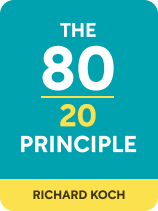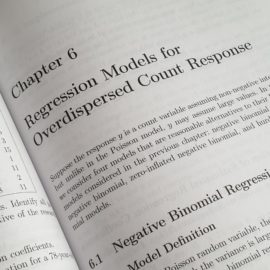

This article is an excerpt from the Shortform book guide to "The 80/20 Principle" by Richard Koch. Shortform has the world's best summaries and analyses of books you should be reading.
Like this article? Sign up for a free trial here .
How do friends influence your life? Do your friends encourage and support you in your endeavors? Or do they judge and bring you down?
As a famous quote says, you are the sum of the five people whom you spend the most time with. Being friends with toxic people who always complain or bring you down will rub off you. Therefore, you must choose your friends wisely.
Here is how your closest relationships influence your success and wellbeing.
Nurture Important Relationships
No matter how independent and skilled you are, you will not achieve success on your own. You need allies. But don’t waste your time on low-quality relationships—choose your friends wisely. Only invest your time and energy in people who help you the most and make you happy.
In your personal life, Koch recommends that you only devote time to people who help you and bring you joy. Reduce—or ideally eliminate—the time you spend with people who take more than they give. For example, if you routinely spend time with a friend who complains about everything and never offers anything positive or motivating, it’s in your interests to end that relationship.
(Shortform note: Research supports Koch’s claim that spending time with people who make us happy improves the quality of our lives. Studies show that spending time with family and friends helps us cope with stress and boosts our happiness, even more so than increased income. Further, spending time with supportive family and friends gives us a stronger sense of purpose in life and can even benefit our physical health by lowering our blood pressure and pulse, thereby reducing our risk for cardiovascular disease.)
Koch provides guidelines for how to choose professional allies who can help advance your career interests. Build a network of six or seven top performers who you trust and respect, broken down as follows:
- One or two mentors with more industry experience than you
- Two or three professional peers with similar work experience
- One or two mentees who can keep you informed of emerging trends
By building alliances with people in different stages of their careers, you can benefit from diverse perspectives and knowledge. Just be sure to devote time to nurturing those relationships and be proactive in supporting your allies. High-quality professional allies, Koch says, yield high returns.
| Follow These Steps to Create Allies at Work Although Koch provides guidelines for the type of professional allies you should seek, he doesn’t clarify how to build those alliances. Here are some steps you can take to form mutually beneficial relationships at work: – Share your knowledge. If you have information that could help your colleagues do their work better or faster, share it with them. They’ll appreciate your support and will know they can count on you to look out for them in the future. – Make introductions that benefit your colleagues. If you think someone in your network could help a colleague, offer to make an introduction. This builds trust and lets your colleagues know that you care and that you have control in your sphere of influence. – Express gratitude when others help you. Be sure to thank your colleagues when they contribute to you. This makes others feel good and increases the chances they’ll want to help you in the future, opening the door to a potential long-term alliance. |

———End of Preview———
Like what you just read? Read the rest of the world's best book summary and analysis of Richard Koch's "The 80/20 Principle" at Shortform .
Here's what you'll find in our full The 80/20 Principle summary :
- How you can work less, earn more, and multiply your happiness
- What the 80/20 Principle is and why it matters
- The mindset shifts you must make to take advantage of the 80/20 Principle






